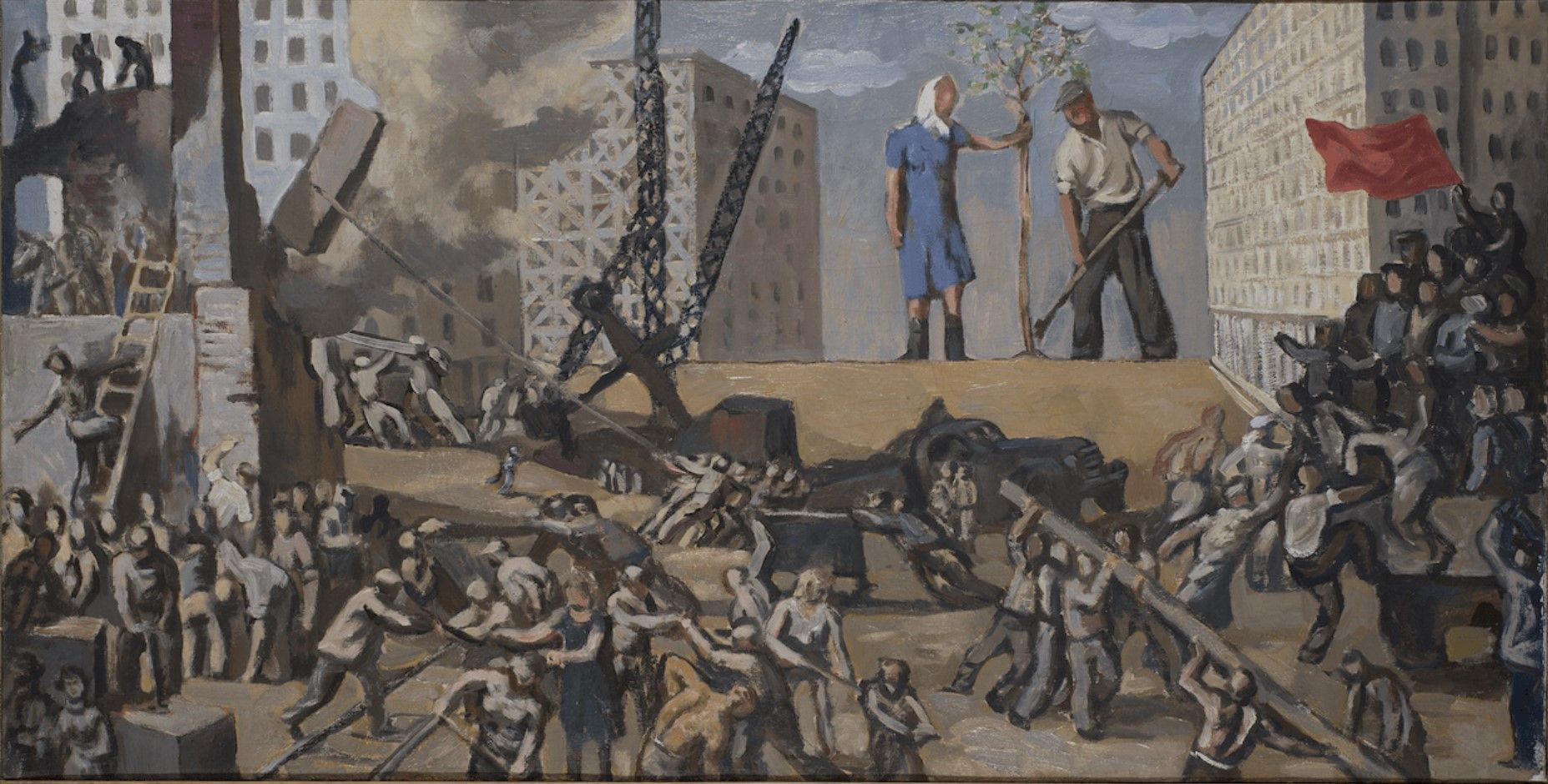
Lecture by Maja Fowkes and Reuben Fowkes
Maja Fowkes and Reuben Fowkes
- Zoom link
- February 27, 2025
- 2025 Anniversary
More-than-Human Revolutionaries: The Politics of Trees in Socialist Art
Thursday, February 27, 2025, 12:00-1:15pm New York Time (find your time)
Maja Fowkes (University College London) and Reuben Fowkes (University College London)
Please confirm your attendance via Eventbrite.
As a contribution to a beyond-human East European art history, this talk considers how arboreal politics was articulated in socialist art, reconstructing the revolutionary reorganization of nature from state-commissioned artistic representations and assessing the potential in such practices to express environmental critique. With their more-than-human temporalities, vital role in ecosystems and as protagonists of biological socialism, trees were the experimental subjects of utopian science and also politicized in ideological projections that rendered saplings and blossoms harbingers of communist futurity. Treated as an expendable yet renewable resource for achieving the targets of a planned economy, clear-cutting went hand in hand with the planting of trees in vast shelterbelts. Both extractive forestry and instrumentalized afforestation constituted forms of anthropogenic interference in natural systems and were implicated in the colonial expansion of the Soviet system. At the same time, forest worlds could become sites of refuge and resistance, while new forms of arboreal politics emerged through reconnective practices of forest recreation and the growth of mass movements for nature protection. In a political system that placed art at the service of social transformation and required artists to align with the programme of socialist forestry, what was the scope for expressing environmental consciousness and how did artists turn the tables in the ideological mobilization of trees? In light of the non-compliance of trees with national and regional boundaries, what are the methodological implications of arboreal ecologies for area-centric approaches in art history and why should we go beyond East-Eurocentrism? Finally, how could the Socialist Anthropocene, with its dynamic relation to Indigenous and decolonial studies, provide a framework to engage in a conversation about the planetary stakes of environmental art history, while illuminating systemic socialist attitudes and practices towards the natural world.
Maja and Reuben Fowkes are art historians, curators and directors of the Postsocialist Art Centre (PACT) at the Institute of Advanced Studies, University College London. They work on the twentieth-century art history of socialism from Eastern Europe to Central Asia and contemporary artistic engagements with ecology, climate and the Anthropocene. Their publications include Art and Climate Change (Thames & Hudson, 2022), Central and East European Art Since 1950 (Thames & Hudson, 2020), a special issue of Third Text guest-edited by Reuben on the “Actually Existing Artworlds of Socialism” (2018) and Maja’s monograph The Green Bloc: Neo-avant-garde Art and Ecology under Socialism (CEU Press, 2015). Maja is Principal Investigator of the European Research Council (ERC) and UK Research and Innovation (UKRI) Consolidator Grant project on the Socialist Anthropocene in the Visual Arts (SAVA) (2022-27). Their teaching at UCL History of Art includes modules on Art History for a Climate Emergency and Contemporary Art and Climate Change, and they also contribute to an interdisciplinary module on Anthropocene Studies. Their curated exhibitions include “Colliding Epistemes” at Bozar Brussels (2022) and “Potential Agrarianisms” at Kunsthalle Bratislava (2021), and they led the Getty Foundation project Confrontations: Sessions in East European Art History (2018-22). They publish extensively in peer-reviewed journals, edited books, exhibition catalogues and on contemporary art platforms including Art Monthly, Texte zur Kunst and Springerin, and they co-host the SAVA podcast Left to be Desired.
Image caption: Wojciech Fangor, Construction, 1949. Courtesy Muzeum Sztuki Łódź